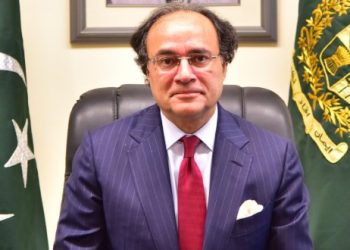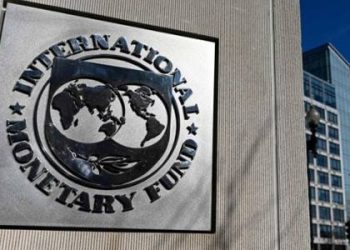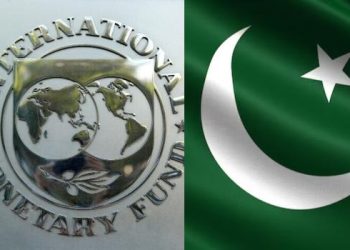ISLAMABAD: The International Monetary Fund (IMF) has called on Pakistan to take immediate measures to eliminate the dual exchange rate system and present a revised budgetary framework to secure a staff-level agreement.
The IMF expressed concerns over the potential rise of the budget deficit to an unprecedented level of 8-9 percent of GDP due to low revenues and unchecked expenditures. The government has been instructed to share a revised budgetary framework for the current fiscal year and the upcoming budget (2023-24) to address these concerns.
In response to the IMF’s demands, the finance ministry has been assigned the task of revising and aligning the macroeconomic and fiscal framework for the next budget. These revised figures are expected to be shared with the IMF on Tuesday night or, at the latest, on Wednesday.
Last week, Prime Minister Shehbaz Sharif engaged in a phone call with the IMF’s managing director, Minister of State for Finance Aisha Ghaus Pasha, and Special Assistant to the PM on Finance Tariq Bajwa. The hour-long call helped break the communication deadlock between the two sides.
Following the call, the finance ministry was given the responsibility of sharing the budgetary framework with the IMF, specifically addressing the issue of the dual exchange rate system. The IMF has emphasized that a dual exchange rate system is not permissible under the current program.
There may be objections from the IMF regarding the allocation of subsidies and grants amounting to Rs1.7 to Rs1.8 trillion in the upcoming budget. The finance ministry has proposed an allocation of Rs970 billion for power subsidies alone in the next budget.
Given the low tax revenues and inflexible expenditures, the government has initiated discussions on the primary deficit, aiming to keep it low or even convert it into a surplus.
Sources indicate that external financing remains a major obstacle to reaching a staff-level agreement. The pending Ninth Review under the $6.5 billion Extended Fund Facility (EFF) has remained unresolved since November 3, 2022, with no consensus reached in the last seven months.
Initially, the external financing gap was estimated at $8 billion until the end of June, following discussions held in Islamabad from January 31 to February 9, 2023.
However, Islamabad opposed the IMF’s suggestion to reduce the current account deficit (CAD) through import compression, asserting that the CAD would be much lower. Nevertheless, the government managed to transform the CAD from a deficit into a surplus mainly through import compression. This policy, unfortunately, led to a decline in GDP growth, which reached 0.29 percent in the outgoing fiscal year 2022-23, according to provisional figures. This figure is significantly lower than the revised GDP growth of 6.1 percent for the previous financial year 2021-22.
Porter emphasized that sustaining strong policies and obtaining sufficient financing from partners are crucial for Pakistan to maintain macroeconomic stability. The IMF staff continues to engage with Pakistani authorities to facilitate a board meeting before the current program expires at the end of June.
In an interview on Tuesday, the IMF Mission Chief acknowledged recent political developments and expressed hope for a peaceful way forward in accordance with the Constitution and the rule of law.
Meanwhile, Finance Minister Ishaq Dar stated that the government has fulfilled all prior conditions of the IMF except for external financing requirements. He discussed budget proposals for 2023-24 with delegations from Lahore and Faisalabad chambers of commerce, emphasizing the challenging choices between import compression and preserving foreign exchange reserves. Dar reassured that Pakistan did not default on its obligations and expressed confidence in divine protection. He called for everyone’s commitment to performing to the best of their abilities.
The finance minister also appreciated the budget suggestions from the delegations and reaffirmed the government’s dedication to overcoming challenges in the commerce sector and ensuring economic growth.
(Islamabad51-Newsdesk)














